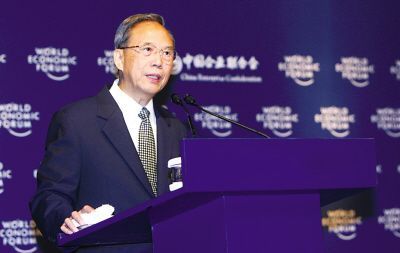One year after leaving the government, Zeng Peiyan, a former Chinese vice premier, was elected chairman of the executive council of the China Center for International Economic Exchanges (CCIEE), a high-level think tank recently established in Beijing, .
|

|
|
Zeng Peiyan, former Chinese vice premier. [File photo]
|
Tagged "China's top think tank" and a "super think tank," CCIEE has drawn widespread attention at home and abroad. Set up against a backdrop of the worst financial crisis since the Great Depression, it aims to help decision makers chart a course through the increasingly choppy waters of the economy and society, according to a 21st Century Business Herald report. Facing increasingly complex challenges, the nation's top decision makers felt they were not receiving adequate service from their existing support system of think tanks advisors.
The CCIEE has come into the world loaded with high expectations, and many feel it marks the beginning of a major overhaul of China's entire think tank system.
Birth of the 'super think tank'
CCIEE was officially launched on March 20, 2009 at a grand ceremony in Beijing. The think tank undoubtedly has a strong leadership, headed by Zen Peiyan. Other well known figures include the former director of the Central Leading Group on Financial and Economic Affairs, vice director of the National Development and Reform Commission, president of China Development Bank, and the president of China National Petroleum Corporation.
Jiang Yong, a researcher at another think tank, the China Institute of Contemporary International Relations, described CCIEE's leadership team as "broad-based and impressive." And apart from its impressive human resources, CCIEE also has top level backing, having been established on the instructions of Premier Wen Jiabao.
Last November, Wen said that with the world economy changing and becoming more complex, decision making could not be left to the experience and knowledge of a small group of people. A broad range of opinions should be consulted to ensure scientific and democratic decision-making.